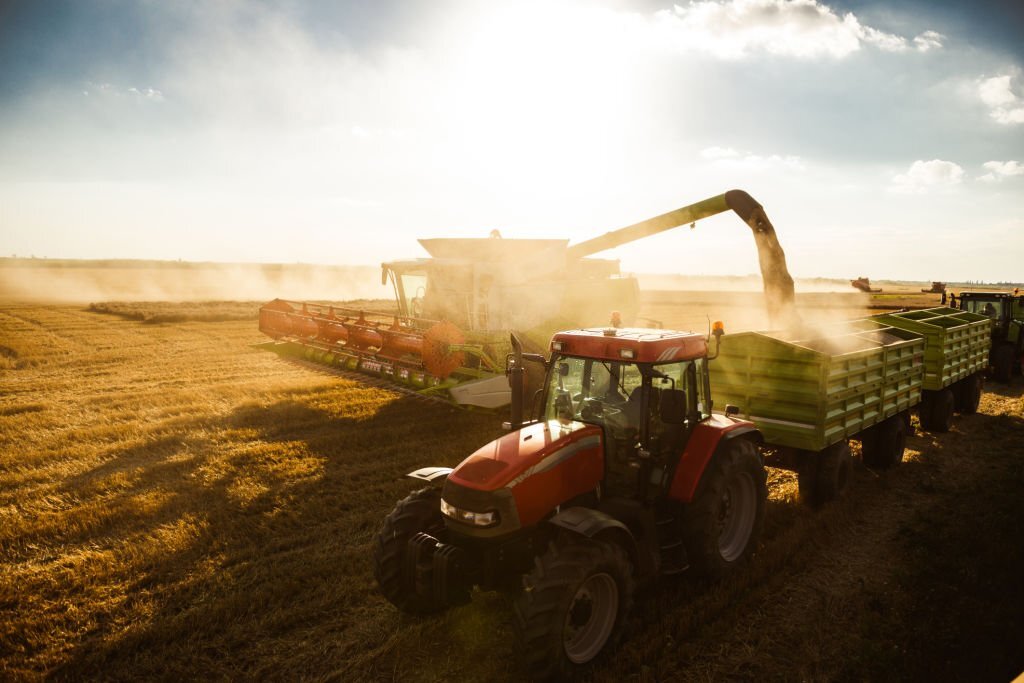
Agricultural equipment, also known as farming machinery, possesses distinct characteristics that set it apart from other types of heavy equipment. Designed specifically for agricultural tasks, this specialized equipment plays a pivotal role in the success and efficiency of farming operations. From tractors and harvesters to sprayers and seeders, agricultural equipment exhibits unique features tailored to meet the demands of crop-specific tasks. In this article, we will explore how agricultural equipment differs from other types of heavy equipment.
1. Specialized Features for Crop-Specific Tasks:
One of the primary distinctions of agricultural equipment is its specialized features tailored for crop-specific tasks. For instance, planting and seeding equipment include mechanisms for precise seed placement and depth control, ensuring optimal germination. Harvesters are equipped with components to efficiently collect, process, and store various crops, such as grains, fruits, or vegetables. Agricultural equipment is engineered to address the specific needs of farming operations, enhancing productivity and crop quality.
2. Durability and Resilience:
Agricultural equipment is designed to withstand the demanding and often harsh conditions of agricultural environments. It must endure extensive use, heavy workloads, and exposure to diverse weather conditions. The equipment is constructed with robust materials, reinforced components, and protective coatings to ensure longevity and durability. This emphasis on resilience allows agricultural equipment to withstand the rigors of daily farming operations and reduces the frequency of repairs or replacements.
3. Versatility and Adaptability:
While agricultural equipment is specialized for farming tasks, it often exhibits versatility and adaptability across different applications. Many agricultural machines, such as tractors, can be fitted with various attachments to perform multiple functions. For example, a tractor can be used for plowing, tilling, planting, or hauling, depending on the attachments employed. This versatility allows farmers to utilize a single piece of equipment for different tasks, optimizing resource utilization and enhancing operational efficiency.
4. Precision and Efficiency:
Agricultural equipment prioritizes precision and efficiency to optimize farm operations. Advancements in technology have led to the incorporation of precision farming tools, such as GPS-guided systems and variable rate technology. These features enable precise application of inputs like fertilizers, pesticides, and water, reducing waste and ensuring targeted delivery. By optimizing input usage and minimizing overlap, agricultural equipment improves resource efficiency, lowers costs, and minimizes environmental impact.
5. Focus on Crop Protection and Soil Health:
Agricultural equipment places a strong emphasis on crop protection and soil health. Sprayers and applicators are designed to effectively distribute crop protection products, ensuring proper coverage while minimizing drift or contamination. Equipment used for tillage and cultivation considers soil health, incorporating features that reduce soil erosion, improve water infiltration, and promote soil structure preservation. Agricultural equipment supports sustainable farming practices that prioritize long-term soil fertility and environmental stewardship.
6. Integration of Advanced Technologies:
Agricultural equipment integrates advanced technologies to enhance performance and productivity. Automation, GPS guidance, data collection sensors, and telematics systems enable precise control, data-driven decision-making, and remote monitoring of equipment. These technologies improve efficiency, reduce human error, and enable real-time data analysis for optimized farming practices.
In conclusion, agricultural equipment differentiates itself from other types of heavy equipment through its specialized features for crop-specific tasks, durability, versatility, precision, and focus on sustainable farming practices. This equipment is designed to meet the unique demands of farming operations, enhancing productivity, crop quality, and resource efficiency. By continuously incorporating advanced technologies and innovative solutions, agricultural equipment evolves to support the ever-changing needs of the farming industry, contributing to sustainable and efficient food production for a growing global population.

